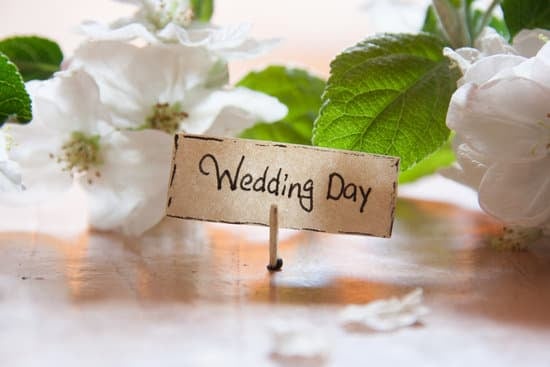Are you interested in learning how to be a wedding bartender? If so, you’ve come to the right place. Wedding bartending is a dynamic and exciting career that allows you to be a part of one of the most important days in a couple’s life. In this article, we will explore everything you need to know about becoming a successful wedding bartender, from understanding the responsibilities of the job to tips for landing your first gig.
As a wedding bartender, you will play a crucial role in ensuring that guests have an unforgettable experience. From mixing drinks to serving guests with a smile, the responsibilities of a wedding bartender are diverse and demanding. In addition to technical skills, such as cocktail crafting and drink pouring, there are essential soft skills that every wedding bartender needs in order to excel in this role.
In addition to discussing the practical aspects of wedding bartending, we will also delve into the importance of professionalism when serving alcohol at weddings. This includes managing difficult situations with grace and ensuring that alcohol is served responsibly.
By obtaining the necessary certifications and training, you can set yourself up for success and demonstrate your commitment to being a responsible and knowledgeable wedding bartender. So let’s dive in and explore all that it takes to thrive in this rewarding career.
The Responsibilities of a Wedding Bartender
Being a wedding bartender comes with a wide range of responsibilities, all of which contribute to the overall success of the event. One of the primary duties is mixing and serving drinks to the guests.
This includes not only fulfilling standard orders for well-known cocktails but also being able to create custom drinks based on the couple’s preferences or specific requests from the attendees. Additionally, bartenders need to keep track of inventory, ensuring that there are enough supplies throughout the event.
In addition to mixing and serving drinks, wedding bartenders are also responsible for providing excellent customer service. This involves engaging with guests in a friendly and professional manner, making them feel welcome, and attending to their needs in a timely fashion. Furthermore, bartenders must be knowledgeable about various types of alcohol and be prepared to make recommendations if needed.
Another crucial aspect of a wedding bartender’s role is maintaining a clean and organized workspace. Bartenders should regularly clean their bar area, discard empty bottles, and ensure that all tools and supplies are easily accessible. This contributes to a positive guest experience and reflects positively on both the bartender and the couple hosting the wedding.
| Responsibility | Description |
|---|---|
| Mixing Drinks | Creating standard cocktails as well as custom drinks based on preferences or requests |
| Serving Guests | Engaging with guests in a friendly and professional manner while attending to their needs |
| Maintaining Cleanliness | Regularly cleaning the bar area, discarding empty bottles, and ensuring an organized workspace |
The Essential Skills Every Wedding Bartender Needs
As a wedding bartender, possessing essential skills is crucial to ensuring the success of any event. The ability to communicate effectively with guests, multitask efficiently, and handle the pressure of a bustling wedding environment are all key components of being a successful wedding bartender. Here are some essential skills every wedding bartender needs:
1. Communication: Effective communication is vital in providing exceptional service as a wedding bartender. From greeting guests with a warm smile to taking drink orders accurately and engaging in friendly conversation with attendees, strong communication skills can enhance the overall guest experience.
2. Multitasking: Wedding bartenders often find themselves working in fast-paced and high-demand environments. Being able to juggle multiple drink orders at once, restocking supplies while still serving guests, and staying organized amidst chaos are all essential multitasking skills that are crucial for success.
3. Dealing with Pressure: Weddings can be high-stress events, and as a bartender, you may encounter demanding situations that require quick thinking and composure. Whether it’s managing long lines at the bar or handling difficult customers, the ability to remain calm under pressure is an important skill for any wedding bartender.
By honing these essential skills, aspiring wedding bartenders can position themselves for success in this exciting and dynamic field. Additionally, seeking out opportunities for professional development through training programs or bartending schools can further enhance these critical abilities, ultimately leading to a rewarding career behind the bar.
The Importance of Professionalism
The role of a wedding bartender goes far beyond mixing and serving drinks. Part of the responsibilities involves serving alcohol responsibly and managing difficult situations that may arise during the event. It is crucial for wedding bartenders to understand the importance of professionalism in their line of work.
One of the key aspects of professionalism as a wedding bartender is knowing when to stop serving guests who have had too much to drink. It’s essential to be vigilant and observant, looking out for signs of intoxication and being prepared to intervene if necessary. This not only ensures the safety of the guests but also helps prevent any potential issues or liabilities for the couple getting married.
Additionally, professionalism also comes into play when managing difficult situations at a wedding event. Whether it’s dealing with an unruly guest or handling a disagreement, maintaining composure and diffusing tension are important skills for a wedding bartender. Being able to handle these situations calmly and professionally can make a significant difference in how smoothly an event runs.
In addition to serving alcohol responsibly and managing difficult situations, it’s important for wedding bartenders to be well-versed in relevant laws and regulations regarding alcohol service at events. This includes understanding legal drinking ages, recognizing fake identification, and adhering to local liquor laws. By doing so, wedding bartenders can ensure compliance with regulations while providing exceptional service.
| Aspect | Description |
|---|---|
| Serving Responsibility | Knowing when to stop serving intoxicated guests |
| Handling Difficult Situations | Dealing with unruly guests or disagreements calmly |
| Laws and Regulations | Understanding legal drinking ages and liquor laws |
Obtaining the Necessary Certifications and Training
Why Certifications and Training Are Essential
Becoming a successful wedding bartender involves more than just knowing how to mix a good drink. It also requires understanding the legal responsibilities of serving alcohol and ensuring the safety of guests. This is why obtaining certifications such as TIPS (Training for Intervention Procedures) and ServSafe is crucial.
These programs provide training on responsible alcohol service, identifying signs of intoxication, and preventing alcohol-related incidents. Additionally, completing a bartending course at a reputable bartending school can provide valuable hands-on experience and knowledge of cocktail techniques.
The Benefits of TIPS Certification
TIPS certification not only equips wedding bartenders with the necessary skills to handle alcohol service responsibly, but it also enhances their credibility in the industry. Many venues and event organizers prioritize hiring bartenders who are TIPS certified, as it demonstrates a commitment to maintaining a safe environment for guests.
Additionally, TIPS training can result in reduced liability for establishments in the event of an alcohol-related incident, making it a highly valuable qualification for anyone pursuing a career as a wedding bartender.
Gaining Practical Experience Through Bartending School
While certifications like TIPS and ServSafe provide essential knowledge about responsible alcohol service, attending bartending school offers hands-on training that is invaluable for aspiring wedding bartenders. Bartending schools typically cover topics such as cocktail recipes, bar setup and organization, customer service, and efficient drink preparation. This combination of theoretical knowledge and practical skills can give newcomers to the industry the confidence they need to excel in their role as wedding bartenders.
By obtaining certifications such as TIPS and completing training at a reputable bartending school, individuals can gain the knowledge and skills necessary to thrive in their careers as wedding bartenders. These qualifications not only demonstrate professionalism and dedication but also ensure that they are equipped to handle the responsibilities that come with serving alcohol at weddings.
Tips for Landing Your First Wedding Bartender Gig
Landing your first wedding bartender gig can be an exciting opportunity to showcase your skills and start a rewarding career in the hospitality industry. Whether you’re just starting out or looking to expand your bartending experience to include weddings, there are several tips that can help you land that first gig.
First and foremost, networking is essential when it comes to finding opportunities as a wedding bartender. Reach out to friends, family, and colleagues who may have connections in the event planning or catering industries. Attending industry events and joining professional associations can also provide valuable networking opportunities to connect with potential employers or event planners looking for bartenders.
In addition to networking, building a strong resume that highlights relevant experience and skills is crucial for standing out in the competitive job market. Be sure to include any previous bartending experience, customer service skills, and any specialized training or certifications like TIPS or ServSafe. Tailor your resume to emphasize how your skills and experience make you well-suited for wedding bartending specifically.
Lastly, when it comes to interviewing for a wedding bartender position, it’s important to demonstrate professionalism, a positive attitude, and a genuine passion for providing exceptional service. Practice common interview questions related to bartending scenarios and be prepared to discuss how you would handle challenging situations. Showcasing your knowledge of popular cocktail recipes and mixology techniques can also set you apart from other candidates.
- Network with friends, family, colleagues, and industry professionals
- Build a strong resume highlighting relevant experience and skills
- Prepare for interviews by demonstrating professionalism, positivity, and passion for exceptional service
Creating Memorable Cocktail Menus
In addition to understanding the couple’s preferences, adding a personal touch to the cocktail menu can really set your bartending services apart. Consider incorporating signature cocktails that reflect the couple’s personalities or experiences together. For example, if the couple met in Mexico, you could create a margarita-based cocktail to honor that special memory. Adding personal touches like this can make the wedding bar experience more meaningful and enjoyable for the couple and their guests.
To create a memorable cocktail menu as a wedding bartender, it’s also important to consider the overall theme and vibe of the wedding. If it’s a formal affair, you may want to focus on classic cocktails and elegant presentation.
For a more casual event, you might opt for fun and fruity drinks that match the laid-back atmosphere. By understanding the couple’s preferences and adding a personal touch while considering the overall ambiance of the event, you can create a cocktail menu that truly enhances the wedding celebration.
Dealing With Wedding Day Jitters
Wedding day jitters are common for not only the bride and groom, but also for the wedding bartender. Managing stress and navigating unexpected challenges are essential skills for a successful wedding bartender. With the high-pressure environment of a wedding, it’s important to be prepared for anything that may come your way.
Effective Stress Management Techniques
One of the most crucial aspects of being a wedding bartender is learning how to manage stress effectively. Deep breathing exercises, taking short breaks when needed, and maintaining a positive attitude can all contribute to keeping stress levels in check. Being organized and having a solid plan in place can also help alleviate some of the anxiety that may come with working at such an important event.
Adapting to Unexpected Challenges
No matter how much preparation goes into a wedding, unexpected challenges are bound to arise. As a wedding bartender, it’s important to stay calm and be flexible when faced with unforeseen issues. Whether it’s running out of a certain type of alcohol or dealing with demanding guests, being able to adapt on the spot is an invaluable skill.
Seeking Support From Your Team
Working as part of a team is crucial in handling both stress and unexpected challenges during a wedding. Having reliable co-workers who can assist when things become overwhelming can make all the difference. Effective communication and teamwork will ensure that everyone is able to work together seamlessly, even in the face of last-minute problems.
Conclusion
In conclusion, being a wedding bartender is an exciting and rewarding career that allows you to play a crucial role in creating unforgettable experiences for couples on their special day. From mixing drinks to serving guests with professionalism and grace, the responsibilities of a wedding bartender are varied and require essential skills such as communication, multitasking, and the ability to handle pressure.
The importance of serving alcohol responsibly and managing difficult situations cannot be overstated, making professionalism a key aspect of this career.
Obtaining the necessary certifications and training, such as TIPS, ServSafe, and attending bartending school, is crucial for success in this field. These qualifications not only enhance your bartending skills but also demonstrate your commitment to professionalism and responsible alcohol service. Additionally, landing your first wedding bartender gig requires networking, resume building, and excelling in interviews – all important steps in kickstarting your career in the wedding industry.
Finally, creating memorable cocktail menus that cater to the couple’s preferences and adding a personal touch can set you apart as a skilled wedding bartender. Dealing with wedding day jitters by managing stress and navigating unexpected challenges is also part of the job.
Overall, becoming a successful wedding bartender involves dedication to honing your craft while providing exceptional service that contributes to the unforgettable memories of each couple’s special day. If you’re passionate about mixology and enjoy working in celebratory settings, this may just be the perfect career for you.
Frequently Asked Questions
How Can I Be a Good Wedding Bartender?
Being a good wedding bartender requires excellent customer service skills, the ability to multitask, and a friendly, approachable demeanor. It’s important to be knowledgeable about different types of drinks and to be able to handle high-pressure situations with grace.
What Should I Wear to Bartend a Wedding?
When bartending at a wedding, it’s essential to dress professionally and in line with the event’s style and dress code. Typically, this means wearing a black or neutral-colored shirt or blouse, black pants or skirt, and comfortable yet stylish shoes. Additionally, it’s important to maintain good personal hygiene and grooming.
What Is the Highest Paying Bartending Job?
The highest paying bartending jobs are often found in high-end establishments such as luxury hotels, exclusive clubs, or upscale restaurants. Bartenders who work in these settings may have the opportunity to earn generous tips in addition to their base salary, especially if they have extensive experience and a strong customer following.

I have been involved in marriages for over 20 years helping couples and singles understand more about them.





